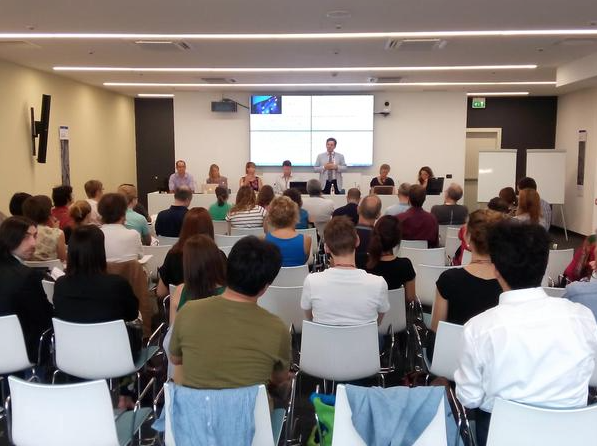Sharing fair trade experiences and research – Fair Trade International Symposium, Milan, May 2015

In May 2015 I presented a paper at the Fair Trade International Symposium, held at the Politecnico di Milano, entitled ‘How can universities better contribute to the fair trade agenda? Developing collaboration between researchers and practitioners in a university for social impact’. My paper focused on the case of the University of Edinburgh and its approach to fair trade.
I presented the context of the UK Fairtrade Universities scheme, and how Edinburgh has been working to develop its work beyond the recommendations of this scheme, to include collaborative action on working conditions at different levels of different types of supply chains, including garments and electronics. I identified three challenges:
- Terminology – is fair trade the right term?
- Lack of knowledge among staff and students actively working on fairness in trade, for example about different labelling schemes and their impact;
- Rising suspicion among students and staff about whether fair trade really works.
I went on to propose better collaboration between researchers, practitioners (for example procurement staff), and those undertaking campaigning activities in the University, on issues of fairness in trade, drawing on the Living Lab concept.
The SRS Department has begun working to embed a Living Lab approach within the University – which means turning the University campus (and its supply chains) into spaces for research. If data (both quantitative and qualitative) on practices, experiences and perceptions can be made more accessible to researchers, including students, research projects can make recommendations for improving policies and practices. In the case of fairness in trade, we are currently working with several MSc students to assess some of the University’s supply chains and social standards, and would like to develop this approach further.
The Fair Trade International Symposium, which takes place every two to three years in different locations, was an interesting place to present and discuss this paper, as it brought together academics from universities across the world, practitioners from the fair trade movement – for example, Fairtrade Foundation, World Fair Trade Organisation, Fair Trade Advocacy Office, fair trade businesses and fair trade producers. Other topics discussed at the conference included fair trade governance approaches, consumption patterns, and methodological innovation in research on fair trade. The programme also included several sessions aimed at creating dialogue between researchers, practitioners and those linked to policy makers – many useful connections were made and built on during the three days. The Milan Expo and the Milan Fair Trade City ‘World Fair Trade Fair’ were taking place concurrently, providing further learning and networking opportunities.
We will continue to review our approach to fairness in trade at the University of Edinburgh, and to develop collaboration internally and externally, to contribute to improving livelihoods across the world.
NB: Photograph courtesy of Fair Trade Advocacy Office





Recent comments